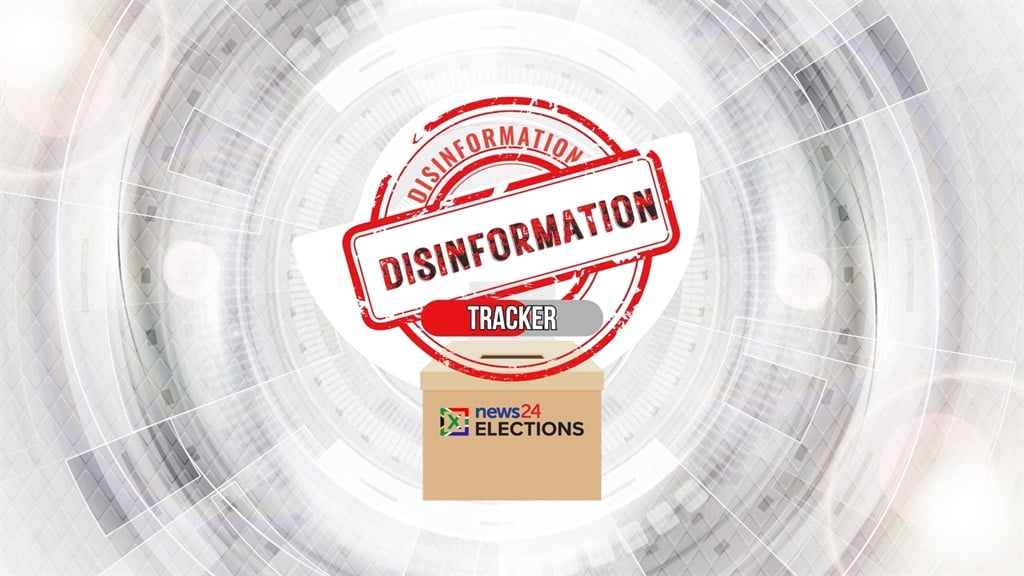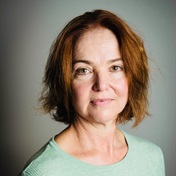
- The general election takes place on 29 May 2024, and harmful disinformation is an unfortunate certainty.
- There are numerous myths about the elections which could misinform potential voters.
- Here are some election myths to be aware of.
With every election cycle comes the spread of disinformation that could harm potential voters and deter them from casting their ballots.
Media Monitoring Africa previously warned that misinformation and disinformation would be a certainty in the run-up to this year's general election on 29 May.
"The Electoral Commission of SA (IEC) is hard at work to ensure that all goes according to plan for these historic elections, and that they are perceived as free and fair. But this is tough when it must deal daily with disinformation," said IEC spokesperson Kate Bapela.
Certain election myths pop up repeatedly and are usually shared via social media platforms, like WhatsApp, Facebook, X (formerly known as Twitter), Instagram and others.
Here are some election myths to be aware of that have been addressed by the IEC and Africa Check.
Myth: If you are registered but don't vote, your vote automatically goes to the governing party.
Fact: The lie that, if you don't vote, your vote goes to the governing party is one of the most common pieces of election disinformation. Though this claim is spread to encourage voting, it can undermine the legitimacy of the election process.
Bapela said: "There is absolutely no truth to the rumour that, if you don't vote, your vote will go to the ruling (or any other) party. Only valid votes cast in an election are counted in the result."
There is absolutely no truth to the rumour that if you don’t vote your vote will go to the ruling (or any other) party. Only valid votes cast in an election are counted in the result. Thanks for checking.
— IEC South Africa (@IECSouthAfrica) May 8, 2019
This does not mean there will be no impact if you don't vote - because you are forfeiting your say in who will govern the country.
She said: "Since every vote counts in an election, not voting can influence the final outcome."
This claim can be categorised as a myth about the electoral process; another example is the notion that a vote for a smaller opposition party is a wasted vote, according to Cayley Clifford, the deputy chief editor of Africa Check.
The DA discouraged people from voting for smaller parties, but this narrative harms the country's democracy and the prospects of smaller parties.
This narrative can also lead to only a few parties being given the opportunity for governing power.
Myth: If the IEC's voting devices are offline, citizens won't be able to vote
Fact: If voters are told they cannot vote because the voter management devices (VMDs) are offline, they should not be deterred from going to their voting stations.
VMDs are important tools used on election day for the registration and voting process. Though they are designed to operate online, they can function without access to the network in offline mode.
Voters may also be told that they cannot vote at their local stations because there is load shedding, but because the VMDs have an offline mode, load shedding should not have an effect.
There are other types of false claims used to keep people away from voting stations, that citizens should be aware of. For instance, during Kenya's 2022 elections season, it was falsely claimed that a leopard was on the loose in highly populated areas; the message was made to look like it came from an official source.
The fake message was considered a tactic to scare off voters and similar strategies may pop up in the 2024 SA election.
Myth: The IEC hires mostly teachers to staff its voting stations
Fact: Several parties have accused the IEC of frequently hiring members of the South African Democratic Teachers Union (Sadtu) for voting station staff. The EFF was one of the parties accusing the IEC of mostly hiring Sadtu members, saying that the organisation was an alliance partner of the ANC.
Sadtu addressed these false accusations after UDM leader Bantu Holomisa said, "IEC is using [Sadtu] to run this country's elections", and "we must take a resolution on this rigging of SA elections".
The IEC uses this Union to run this country’s elections, an affiliate of Cosatu which is in alliance with the ANC.This time in our meeting of the opposition parties on 26/2/24, we must take a resolution on this rigging of SA elections. pic.twitter.com/wJcro7EOUm
— Bantu Holomisa (@BantuHolomisa) February 14, 2024
Sadtu clarified in a statement: "The IEC does not recruit and appoint Sadtu members, but recruits and appoints citizens, including teachers, as public servants who meet the minimum requirements to preside over and manage elections."
A myth like this can make voters distrust the process.
"The IEC has no policy to recruit any union members. Our recruitment criteria, agreed upon by parties in the National Political Liaison Committee, are transparent." Bapela said.
The IEC has an e-Recruitment platform on its website, where anyone can apply for work at a registered voting station; preference is generally given to unemployed youth.
Bapela noted that the number of teachers working as officials in elections had dropped significantly over the years.
"Of the 200 000 election officials, who will serve in the voting stations on 29 May 2024, fewer than 10% will be teachers," she said.
Myth: The IEC shares voters' personal contact information with political contestants
Fact: Though the IEC is required by law to publish the voters' roll, which contains the names of registered voters, and make it available to contesting parties and candidates, no contact details of citizens are included in it.
Information on the voters' roll may only be used for election purposes. Parties are provided only with the names, partial ID numbers, and addresses of registered voters, Bapela said.
"Some parties use commercially available databases to obtain contact details for eligible voters," Bapela added.
"Voters are within their rights to raise any concerns they may have regarding unsolicited approaches with the party or candidate concerned, and can ask for their details to be removed from the political contestant's database."
Myth: The voters' roll is flawed as it has deceased citizens and non-citizens who actively vote
Fact: The IEC regularly updates the voters' roll to remove deceased voters and non-citizens, including permanent residents, from the roll.
"The IEC obtains a copy of the up-to-date National Population Register from the Department of Home Affairs on a monthly basis, and checks it against the National Common Voters' Roll," Bapela said. "This is an automated process, with no margin for error."
If a deceased citizen is still on the voters' roll, then the family must approach Home Affairs to declare the person deceased.
Any alleged voting that takes place in a deceased citizen's name will be fraudulent because voting must be done in person to verify identities.
Myth: South Africans abroad are being prevented from voting due to a restriction on international voting stations
Fact: South Africans abroad can vote at 125 international voting stations at accredited diplomatic missions, which include embassies, high commissions or consulates, Bapela said.
READ | Elections 2024: DA wins court battle to have more voting stations abroad
She added:
Citizens in countries without diplomatic SA missions cannot be assisted with in-person registration and voting.
Myth: Citizens should be concerned about vote-rigging and fraud
Fact: Some politicians and citizens have raised unnecessary concerns about the possible vote rigging or election fraud. The ANC had to dismiss claims the election would be rigged, with fears being stoked by former president Jacob Zuma.
He questioned the transparency of the election process, bolstering suspicions of election fraud.
"We are going to the elections soon and there are people who believe the elections will be rigged. Some have information that the counting system will be changed to advantage a particular party. Where is the truth?" Zuma said during a rally.
"Maybe because they say majority rule has the right to change laws, we should change the voting system. Why is there so much secrecy in our voting system? Especially the counting that is done behind the scenes?" he added.
READ | Mondli Makhanya: Zuma sows poisonous seeds of election doubt: What's his endgame?
The IEC rejects claims from politicians expressing concerns about the alleged secrecy surrounding elections and the implication of vote rigging.
"The voting and counting process at each voting station happens in the presence of observers and party agents from all contesting parties," Bapela said.
The observers and party agents ensure and verify the counting is correct. The results are later verified again by observers, party representatives and independent auditors. Accurate results are reflected after the multi verification process is complete.
"Rest assured, the process is free and fair, and transparent, and that every single vote is counted ... and counts!" Bapela said.
Caution: Be wary of deep fakes, AI images, edited videos and images, etc.
False information can be spread through the use of images generated by artificial intelligence, or through other forms of visual or audio manipulation.
Earlier this year, a fake video circulated of Eminem showing his support for the EFF and bashing the ANC. This video used deep fake technology to misinform online users.
Another fake video also circulated of Donald Trump expressing his support for the uMkhonto weSizwe Party.
These types of images and videos fall under the category of fake endorsements or false claims of support, according to Africa Check's Cayley Clifford.
Citizens must exercise caution for similar videos and images, and always find an official source that confirms any type of similar information.
- Additional reporting by Storm Simpson.




 Publications
Publications
 Partners
Partners


























